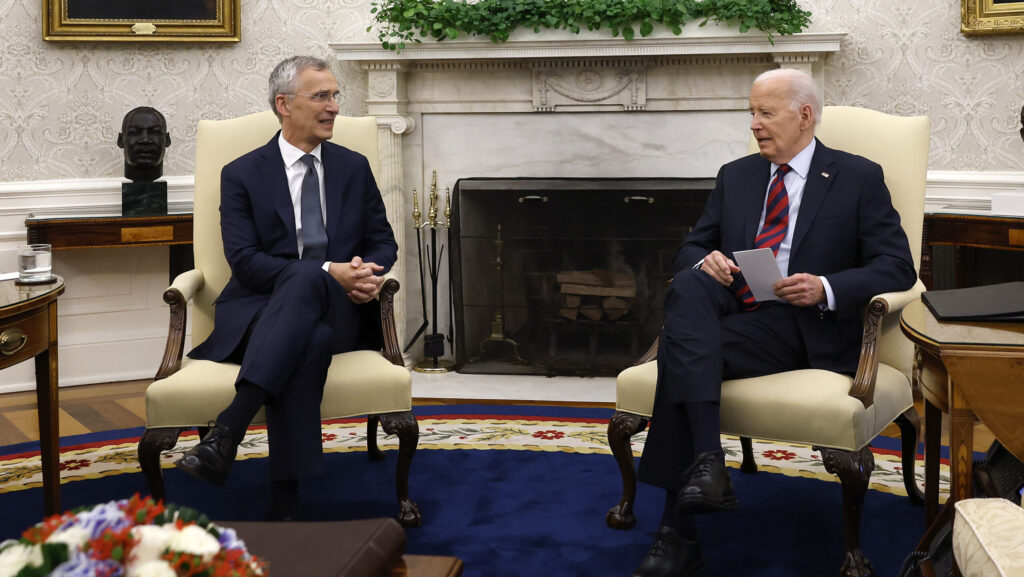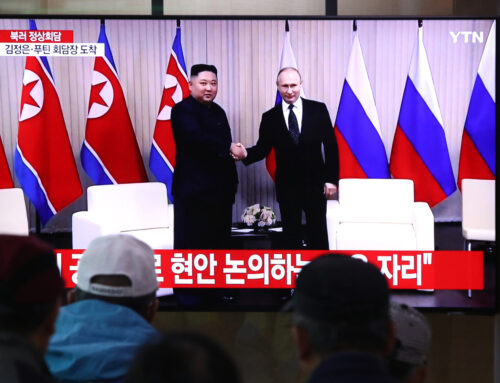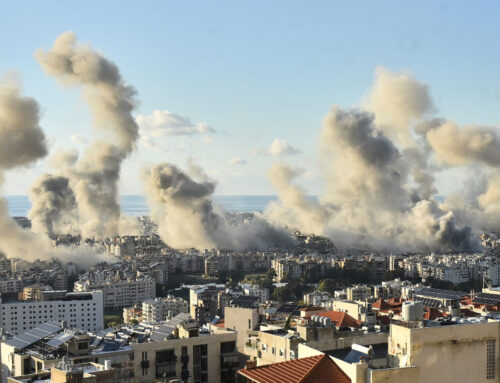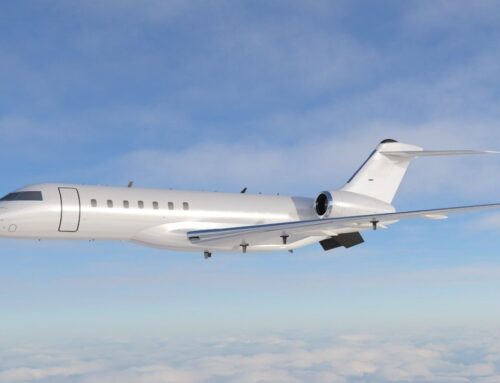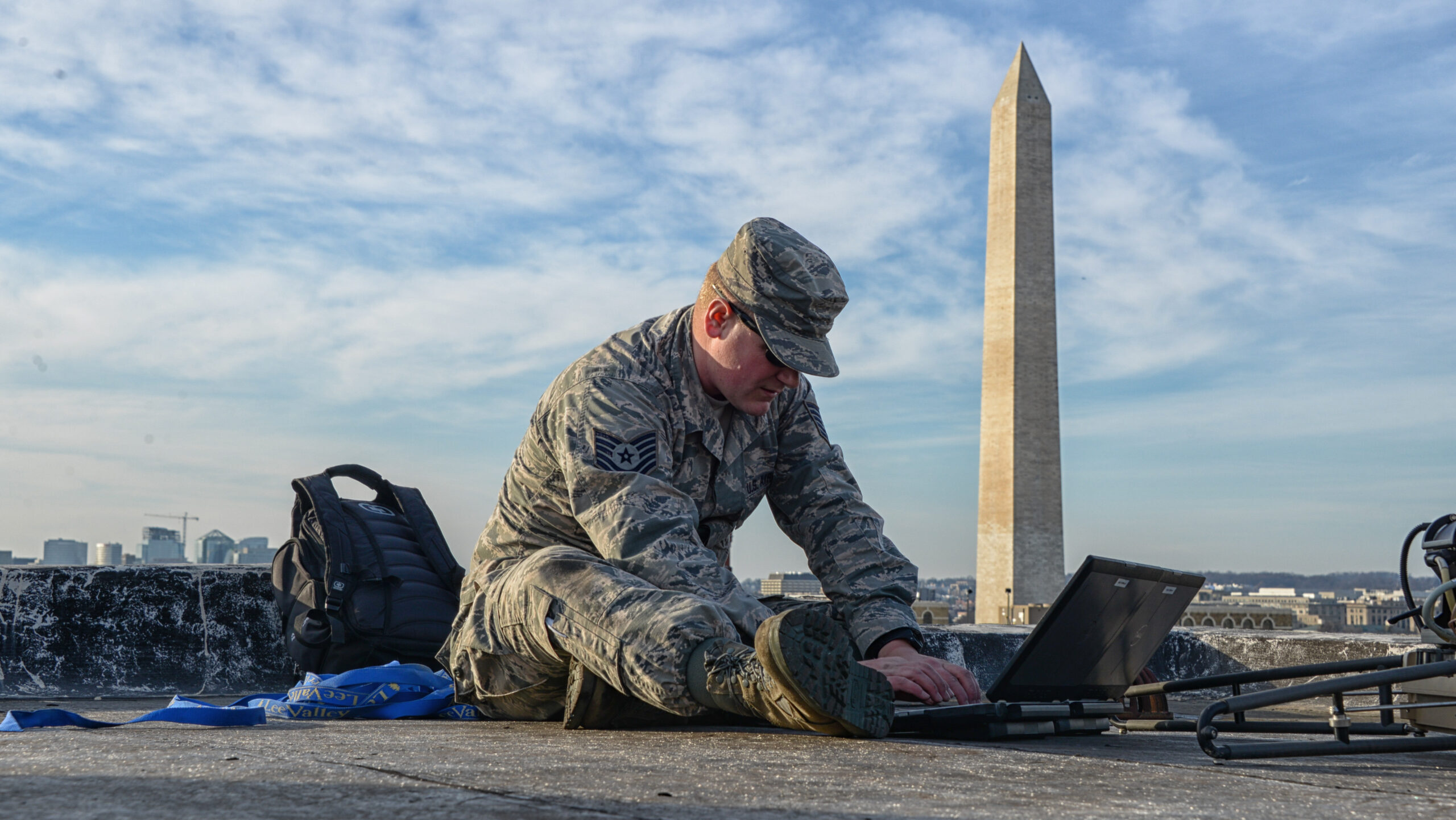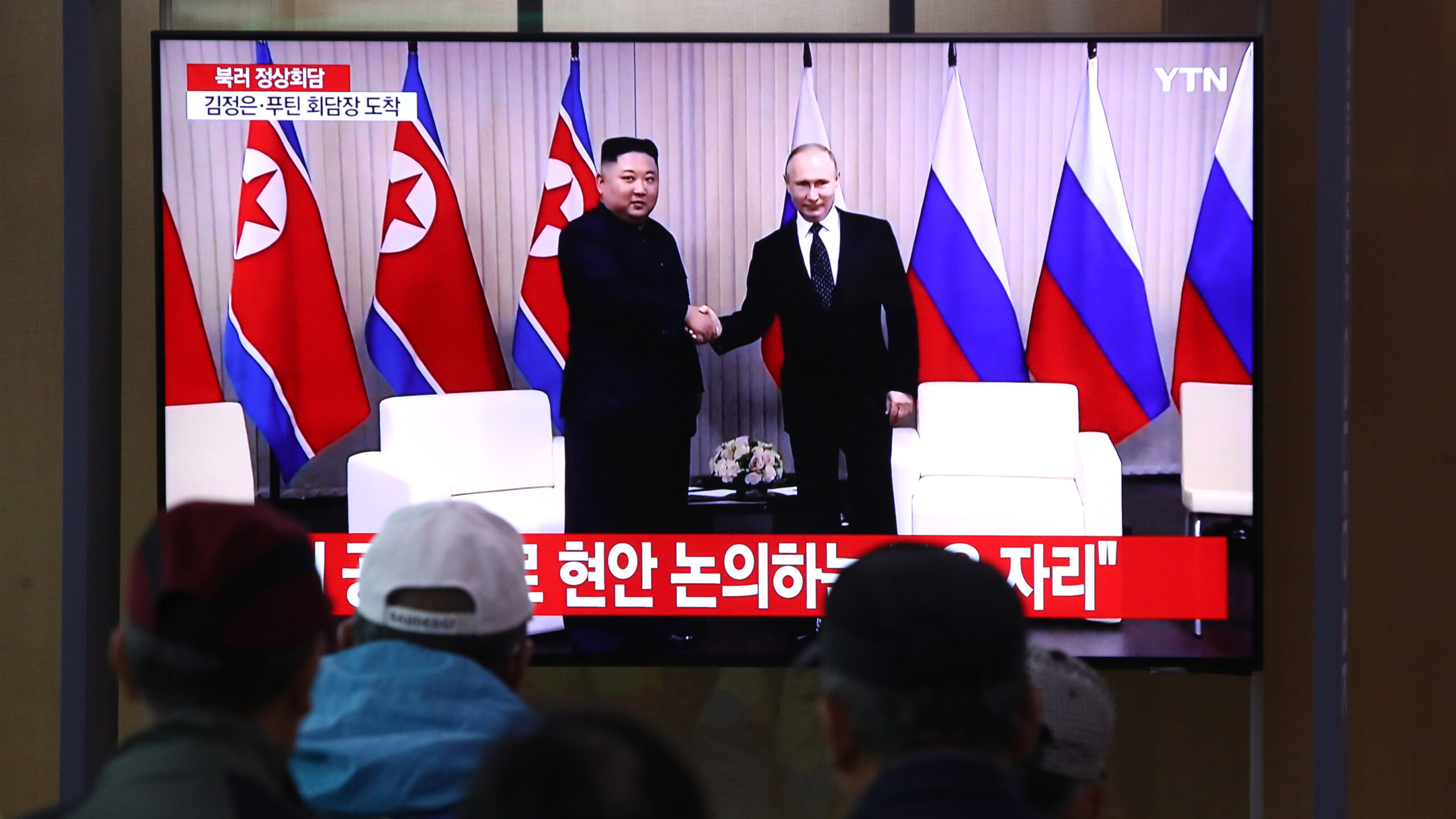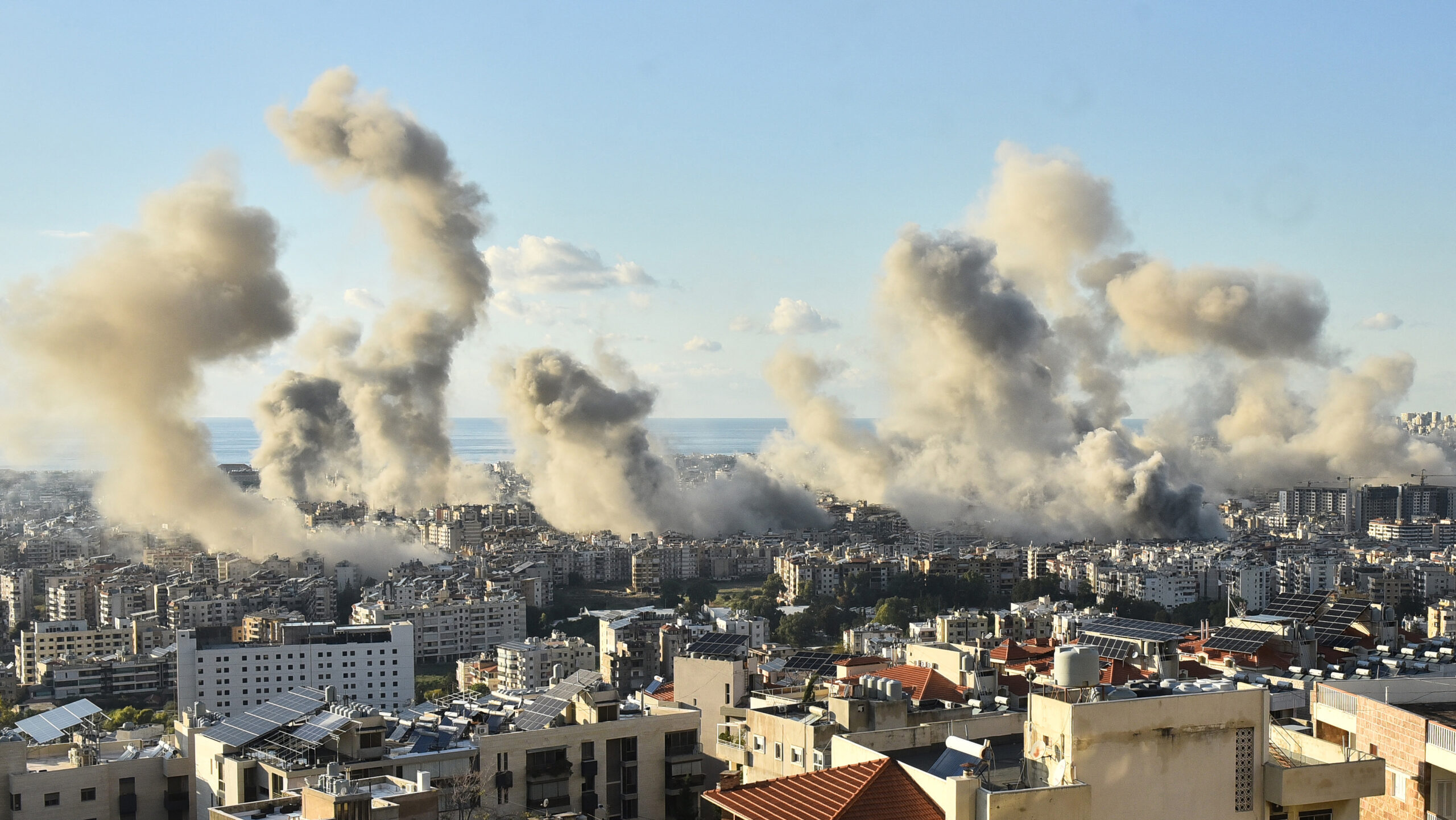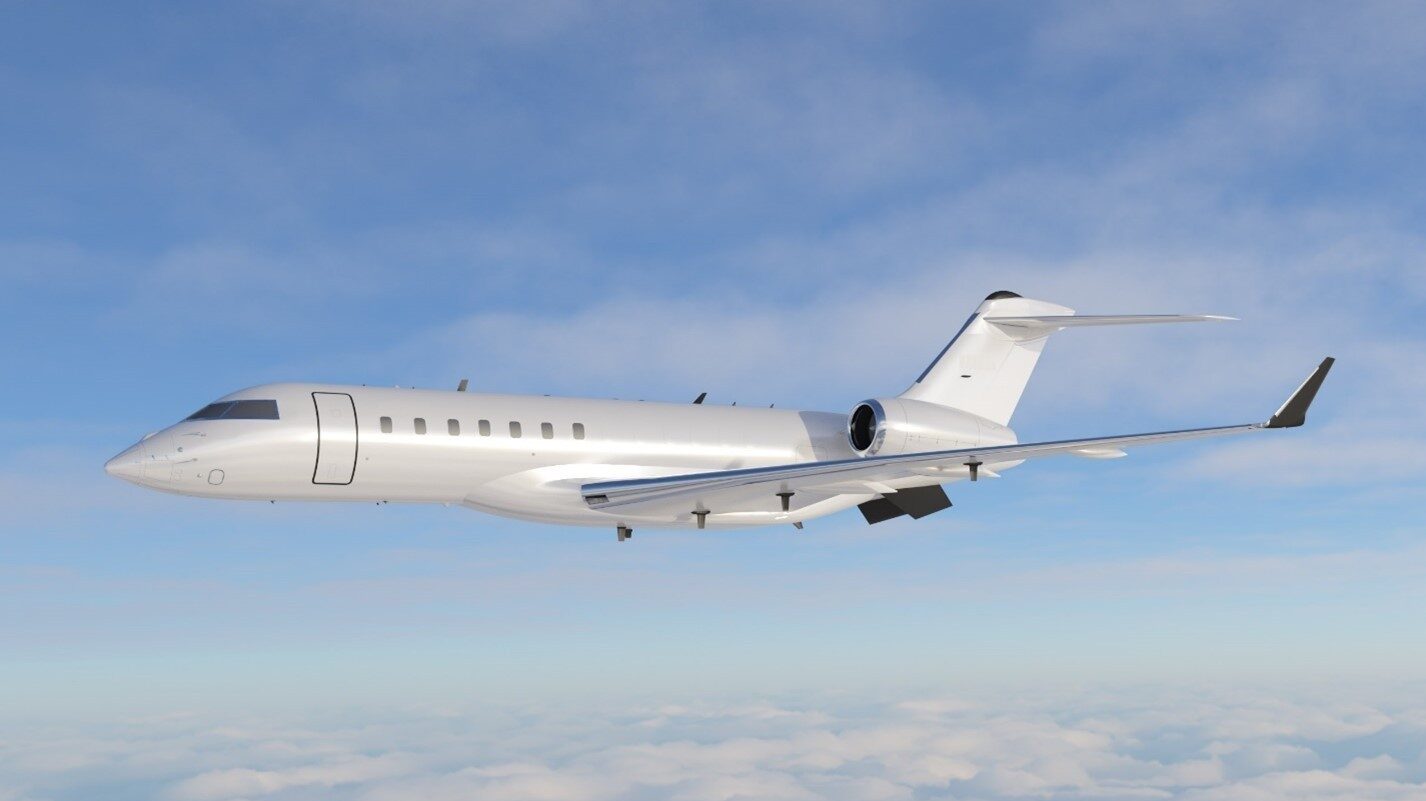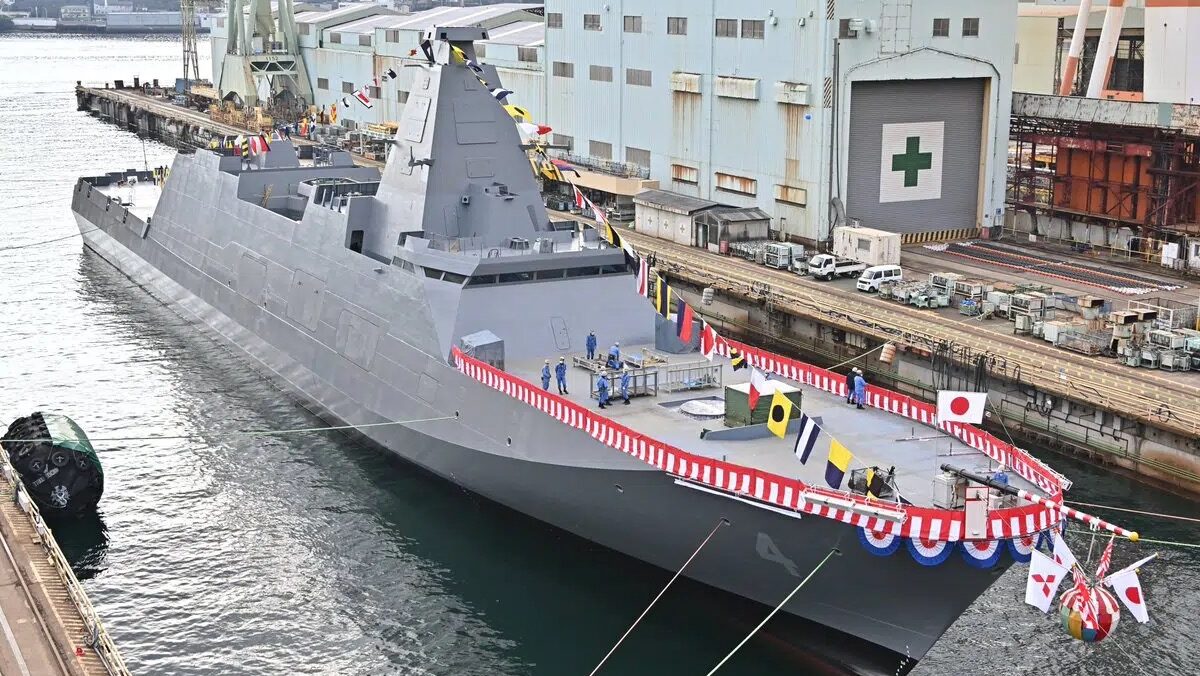WASHINGTON, DC – JUNE 17: US President Joe Biden (R) meets with NATO Secretary General Jens Stoltenberg in the Oval Office of the White House on June 17, 2024 in Washington, DC. (Photo by Kevin Dietsch/Getty Images)
SINGAPORE — This week’s NATO summit will serve not just as a meeting of alliance leaders, but as a showcase of how far the alliance has come in the 75 years of its existence. From a 12-country grouping to 32 nations — and from a military organization focused solely on Europe to one with increasing interests in the Pacific.
Yes, NATO will always be Euro-focused by its nature, but members have been increasingly open about how the Pacific is an area of increasing concern, both due to Russia’s interests in the region and because of China, both as its own threat and for its support of Moscow’s campaign in Ukraine.
In a background preview of the summit, the White House said that the alliance on Thursday will host a meeting bringing together representatives from the European Union, Australia, Japan, the Republic of Korea, and New Zealand to “deepen” the cooperation between Europe and the Pacific.
Among the topics that will be discussed with the Asian partners: “resilience in the region; supporting Ukraine, as I mentioned; countering disinformation; cyber; and then also on tech cooperation, emerging technologies,” according to a senior administration official.
The official also said there would be language specific to China in the final communiqué text that serves as the capstone to the NATO summit.
Over the last year, outgoing NATO Secretary General Jens Stoltenberg has been pointing the alliance’s attention eastward.
Almost a year ago exactly, Jens Stoltenberg wrote in Foreign Affairs that “the Chinese government’s increasingly coercive behavior abroad and repressive policies at home challenge NATO’s security, values, and interests.” Stoltenberg followed that up with a January visit to Taiwan, where he made clear linkages between aggressive acts by authoritarian nations in Europe and Asia and the dangers they present.
“What happens in Europe matters for Asia. What happens in Asia matters for Europe and today, it’s Ukraine tomorrow, it can be Taiwan,” he said then.
Russian President Vladimir Putin, he continued, would “make the world more dangerous and us all of us more insecure,” according to a NATO press release. It would encourage other authoritarian leaders, including those in the DPRK, Iran and China, to use force, he said.
Most recently in a June 17 address at the Wilson Center in Washington, the NATO chief laid out how much of what happens in either region directly effects the other.
“If President Putin prevails in Ukraine, it’s not only tragedy for the Ukrainians. It sends a very clear message to President Putin, but also President Xi [Jinping], that when they use military force, when they violate international law, they achieve what they want. So, if you’re afraid of Chinese aggression in the South China Sea or Taiwan, then you should be very concerned about Ukraine. And I met the Prime Minister of Japan not too many months ago, and his message is — what happens in Ukraine today can happen in Southeast Asia tomorrow.”
The issue is whether these two theatres are distinctly separate challenges for Washington or are they inextricably linked. Does the ebb and flow of US military support for Ukraine create doubts with its Asian partners about America’s ability to simultaneously compete with the PRC? Or does it reassure them of Washington’s resolve to adhere to its global commitments?
Recent developments suggest the two conflicts — one an active, “hot” war and the other potentially Cold War 2.0 in Asia — are not the mutually exclusive events that some would claim and are, in reality, inseparable.
Europe Comes To Shangri-La
Because NATO can be so Eurocentric, it’s easy to forget that Russia is a Pacific power as well, and that any major conflict with Russia would bleed over into the region. And of course, China would likely look at a major conflict between Washington and Moscow as a useful distraction for its own purposes, including any move it would choose to make on Taiwan.
So, it was telling that the Shangri-La Dialogue in Singapore last month, annually the largest gathering on Indo-Pacific security issues in the world, featured quite a bit of Ukraine talk — and a surprise visit from Ukrainian President Volodymyr Zelenskyy.
The Ukrainian leader has become a staple at defense gatherings as he tries to shuttle-diplomacy his way into an arsenal capable of defending his territory, but he brought with him a specific message aimed at leaders in the Pacific.
Specifically, he hoped to use the Singapore forum to drum up participation by Asian nations in the now concluded June 15-16 Summit on Peace in Ukraine held in the Bürgenstock Resort in Switzerland.
Of the 90-some nations represented at the summit, 78 signed a communique stating: “respect for territorial integrity and sovereignty … can and will serve as a basis for achieving a comprehensive, just and lasting peace in Ukraine.” Among the 78 signees were 11 Indo-Pacific nations: Australia, Federated States of Micronesia, Fiji, ROK, Japan, New Zealand, Palau, Republic of the Marshall Islands, Singapore, Timor Leste and Tonga.
That was a direct challenge and contradiction to the positions laid out by Putin on the eve of the Swiss summit as the Kremlin’s conditions for a cease-fire. Ukrainian presidential adviser Mykhailo Podolyak called Putin’s terms a “complete sham” and “offensive to common sense.”
The other, longer-term goal of Zelenskyy’s message to an Asia-Pacific audience was to highlight the damage done by the PRC’s increasing support for Russia’s war machine.
His public speech to the forum was a subtle and indirect reference to Beijing supplying Russia’s military and defense industry when he told the Shangri-La forum: “We know that many Asian nations do not support Ukraine with weaponry,” he said (without mentioning the Asian nations that are supporting Russia with deliveries of weaponry). “We have never pressured them, never demanded it. We always ask for, first and foremost, political support, support of our people, civilians, our children.”
But in his press conference later that afternoon, the Ukrainian president was more direct and specific.
In response to a question on the impact of the PRC’s role in the Ukraine conflict he responded “first and foremost, due to China’s support for Russia the war will last longer. And that is bad for the whole world … You can never support a country that is an aggressor,” the Ukrainian leader said, adding, “it says that the policy of your country is also the same in general — to support the aggressor.”
Zelensky then criticized Beijing’s refusal to participate in the peace summit saying that “It seems to me that to disrupt the summit, to make steps to weaken the representation of leaders and countries, to do everything so that certain leaders do not arrive at the peace summit, to push them, pressure them — this definitely does not bring peace closer.
“That is not only supporting Russia — that is basically support of the war. Because if you do not support the peace summit then what is transpiring [in Ukraine] is seen as normal to you.”
In response to a later question, he was even more pointed, stating “Russia — using Chinese influence on the region, using Chinese diplomats also — does everything to disrupt the peace summit. Regrettably, it is unfortunate, that such a big, independent, powerful country as China is an instrument in the hands of Putin.”
Asia’s Military Lifeline To Moscow
Beijing’s assistance to their Russian neighbor now includes more than just running diplomatic interference. US Intelligence officials have been leaking reports to US media outlets as far back as April assessing that Russia was now almost entirely dependent on Beijing for vital inputs — particularly microchips and other electronic components — that keep its defense industrial plants running.
One researcher from the London Royal United Services Institute told Breaking Defense in 2023, entire production lines for Russian missile seekers and other guidance systems had completely switched from US and EU-sourced components to those made in the PRC. More recently, Russia has employed the use of glide bombs that utilize electronics that are shipped through the PRC, Thailand and Turkey.
According to recent statistical data obtained from the two countries’ customs services, Russia’s imports of Chinese electronics and machinery increased in 2022 by 15 to 20 percent on average compared to 2021. That dependency continued upward in 2023, with imports of these goods growing another 20-25 percent year-on-year.
Beijing officially denies it is providing Moscow with military assistance. But there is consistent evidence the PRC is exporting high-ticket industrial-grade items that are battlefield-configured or military-applicable goods. These include heavy machinery to dig trenches and cargo-carrying trucks. Russia’s industrial sector is also entirely dependent on China for machine tools.
According to the US senior administration official, “something like 90 percent of Russia’s semiconductors [is] coming from the PRC; 70 percent of its nitrocellulose, which is used for propellants — and a lot of its optics, machine tools, et cetera — all of this not only fueling Russia’s war against Ukraine but also creating a long-term challenge for European security that, obviously, our Allies recognize. And so we will have, I think, strong language on this to address.”
However, there are limited avenues for the West to pressure Beijing on this. Often when PRC goods to Russia could result in Chinese firms being sanctioned by the US and the EU, those shipments are routed through Central Asian countries. Ball bearings made in the PRC, used in the production of Russian main battle tanks, rail cars and other vehicles, are often imported via Kyrgyzstan. Not coincidentally, in 2023 sales of Chinese ball bearings to Kyrgyzstan reportedly rose by more than 2,000 percent compared with 2021.
Troubles caused for Ukraine by Asian nations supporting Russia do not end here. An official US State Department assessment states that the Democratic People’s Republic of Korea (DPRK) has “unlawfully transferred dozens of ballistic missiles and over 11,000 containers of munitions to aid Russia’s war effort.”
In return, the DPRK are believed to be receiving advanced Russian military technologies that could potentially boost its nuclear weapons program, help design ballistic missiles, and provide information on submarine design know-how and satellite systems.
Victor Cha, the Korea chair at the Center for Strategic and International Studies (CSIS) and the author of an extensive book on the DPRK, recently told Business Insider “I think this is the biggest threat emanating from the Korean Peninsula since the Korean War.”
‘Interests In The Region’
At the start of day two at Shangri-La, US Defense Secretary Lloyd Austin highlighted the European defense ministers present, noting they “are not here because I invited them. They are here because they have interests in this region.”
But just how intertwined interests of Asian nations are with the more than two-long year war in Ukraine became clear once Austin finished his address and the Q&A segment began.
One of the questioners was Cao Yanzhong, a People’s Liberation Army Senior Colonel who is a researcher at the Institute of War Studies of the PLA’s Academy of Military Sciences. His barbed preface to his inquiry was “the eastern border expansion of NATO has led to the Ukraine crisis,” and he then asked, “what implications do you think the strengthening of the US alliances system in the Asia-Pacific will have on this region’s security and stability?” — implying the US would be the guilty party if a conflict breaks out in Asia.
Austin started his response to Cao by saying “I respectfully disagree with your point that the expansion of NATO caused the Ukraine crisis” — at which point he was interrupted from loud applause from the audience.
Remember, this enthusiastic approval of the secretary’s direct contradiction of the PLA representative was in front of an Asia-Pacific audience and not a European security forum.
As Austin went on to note that Putin was the aggressor, not Ukraine or NATO, the largely Asian focused audience nodded along — potentially a sign that, as NATO discusses Pacific issues this week, it will find plenty of friends in the region.


